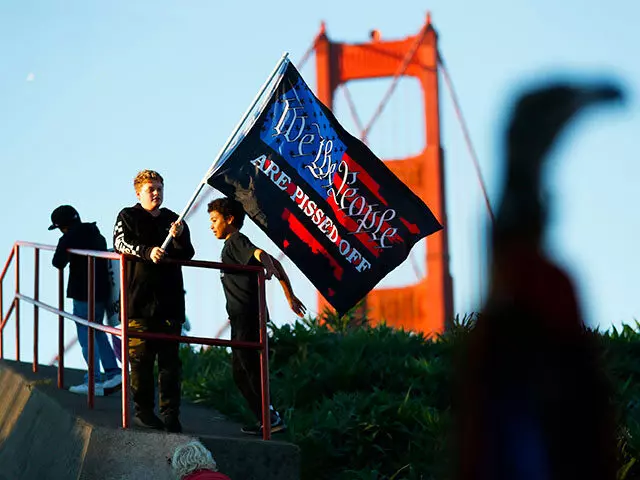In recent times, the city of San Francisco has experienced a considerable shift in its political ideology, with the once-progressive bastion now appearing to lean towards more centrist views. This change can be seen prominently in the upcoming mayoral election, which some have dubbed a “race against progressive politics.” An opinion piece by Defne Karabatur of the Los Angeles Times highlights the city’s transformation and questions whether San Francisco can still embrace an old-school progressive for mayor.
The author, who graduated from the Bay Area’s UC Berkeley, raises concerns about the Californian “outrage” over the progressive agenda coming to light in the unlikeliest of places: San Francisco itself. The lead-up to the presidential election has further exacerbated these sentiments, with the city appearing to move too far right for an old-school progressive candidate to succeed as mayor.
Karabatur and Hannah Wiley, a San Francisco-based LA Times reporter, argue that only one of the race’s candidates is running on a progressive agenda. That candidate, Aaron Peskin from the San Francisco Board of Supervisors, finds himself as an underdog in the mayoral contest. The author poses a series of questions to delve deeper into this shift: “What does it all mean? Is San Francisco no longer a bastion of progressive politics? What even is progressivism.
An early August poll commissioned by the San Francisco Chronicle found that Peskin was the first choice for only 12% of likely voters, coming in fourth behind incumbent Mayor London Breed, former interim Mayor Mark Farrell, and anti-poverty nonprofit founder Daniel Lurie—all Democrats.
Breed faced accusations from the city’s “progressive wing” of leaning into conservatism after supporting two successful ballot measures to strengthen police and clamp down on drug use. She had 28% of likely voter support in the poll, followed by 20% for former interim Mayor Mark Farrell—a man whose platform was called “strikingly conservative for San Francisco” by Politico and “the most rightward leaning” out of all the Democrat candidates by The New York Times. Lurie, who comes in at third place with 17% of the support from likely voters, has also been described as a “moderate” who draws in support from Republicans.
The slow recovery from the COVID-19 pandemic has upended San Francisco’s culture and shaken voters’ trust in the city’s leadership. The recall of three school board members due to parents’ frustration over school closures is just one example of this shift in public opinion. Moreover, the recall of former District Attorney Chesa Boudin, who was criticized by opponents over progressive policies on sentencing and incarceration, serves as another illustration of San Francisco’s move away from radical progressivism.
In conclusion, the author states that few candidates fit neatly into specific political categories, even if they try to claim or eschew one. It is ultimately the policies, not the labels, that will define the next few years of San Francisco’s political landscape.

